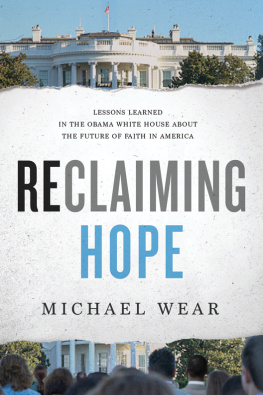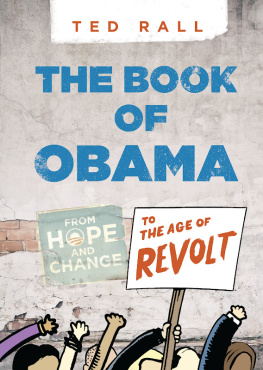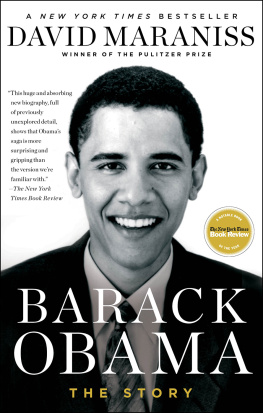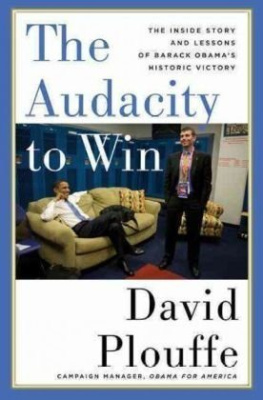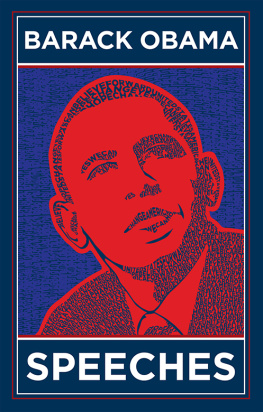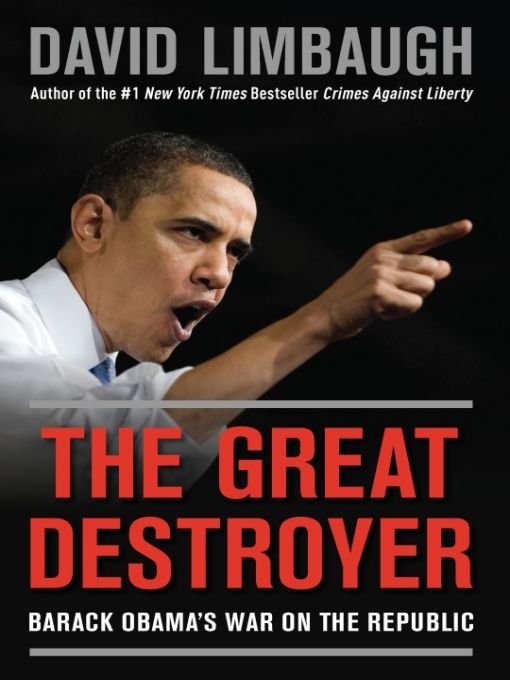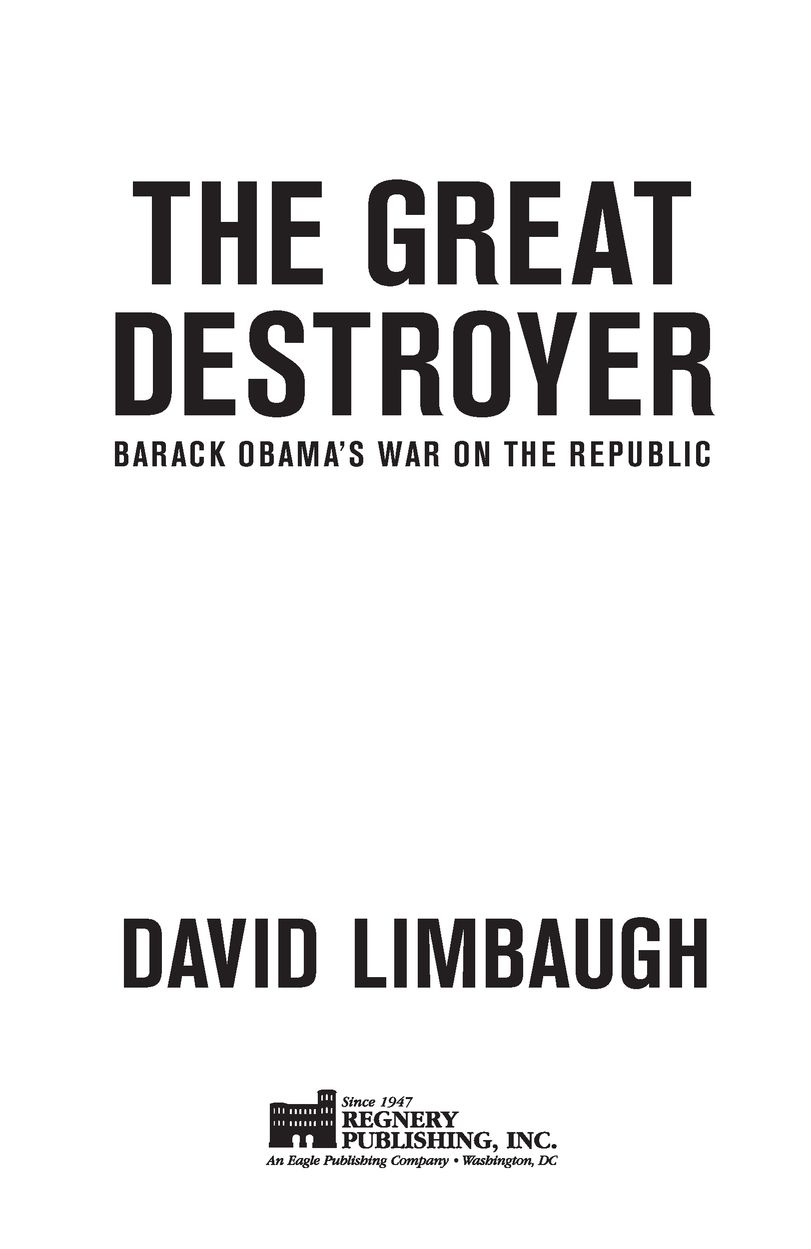Table of Contents
To my good friends in the conservative community on Twittera patriotic group of warriors fighting to save the Republicand to the tea party movement, which has proven that the torch of freedom still burns brightly in America
INTRODUCTION
This book chronicles the destructive policies and actions of the Obama administration since my last book, Crimes Against Liberty, was published in August 2010. The two books together are intended to provide an encyclopedic account of President Obamas broad-based assault on the American republic. In the pages that follow, I chronicle his war on our Constitution and our political and economic liberties, and recount his assault on Americas economic, social, cultural, national security, business, and industrial institutions.
While informed readers will be familiar with many of the events detailed in this book, I dare say they wont find a comparable one-stop shop for this contemporary history weve all experienced. It is my hope that the sheer volume and nature of Obamas misdeeds documented herein will shock the conscience of fair readers and demonstrate the gravity of the condition in which America now finds itself after nearly four years of his socialistic and lawless behavior, and underscore the urgency that he be defeated in 2012. In addition, I trust that along with Crimes Against Liberty, The Great Destroyer will in future years serve as a reminder of how close America came during these years to losing finally, forever, its freedom tradition and its rightful place as the greatest, freest, noblest, and most prosperous nation in the history of mankind.
As well see in this introduction and in the following chapters, President Obama has repeatedly revealed his impatience with our Constitutions separation of powers and its checks and balances, lamenting that democracy is sometimes messy and frustrating. He just wants the other branches to get out of his way, because he cant allow a silly inconvenience like the Constitution to obstruct his utopian vision for America.
Obama and his allies have repeatedly broadcast their intentions in this regard. His former chief of staff, Rahm Emanuel, promised that Obama would govern through executive orders and directives to get the job done across a front of issues.
Obama implements his power-grabs through administrative usurpations of legislative power, executive overreaches, and unconstitutional legislation, assisted by the many radical, unaccountable czars he has appointed. In his failed jobs bill (the American Jobs Act), he sought to create a new group of czars (the American Infrastructure Financing Authority) to manage more than a trillion dollars of taxpayer money for infrastructure improvementsauthority that already resides with the Department of Transportation, the Department of Energy, and the U.S. General Services Administration. Columnist Lurita Doan notes that the White House has also assembled an expansive new cadre of unaccountable White House liaison officers who seem to be the critical players in so many of the scandals now erupting. Working under the authority of Obama senior adviser Valerie Jarrett, these officers are largely unqualified and inexperienced and are embedded into every single federal agency. Obama reportedly didnt have contact with a half dozen cabinet members during his first two years in office,
Conservatives have been exercised over ObamaCare, but Obamas Dodd-Frank financial bill is arguably every bit as illegitimate. The bill created the Consumer Financial Protection Bureau (CFPB), to be headed by a five-year presidential appointee whose power, according to one legal expert, would be so significant it may be unconstitutional. I am not familiar with an institution that gives so much power to one person, says Todd Zywicki, a law professor at George Mason University. This person, Zywicki explains, does not even have to consult Congress on the agencys budget, which every other agency is required to do. He just has to submit his budget to the Federal Reserve, and as long as it is less than 12 percent of the Feds revenue, it will be approved. Basically, notes Zywicki, this director can do whatever he or she wants with only limited review.
Obama didnt want to wait on the Senate to confirm his appointee to run the CFPB, so he carved out a special advisory role at the bureau and appointed the anti-capitalist Harvard professor Elizabeth Warren to lead a team of thirty to forty people at the Department of Treasury.
Once Warren had served her purposes, Obama nominated former Ohio attorney general Richard Cordray to head the CFPB, because he had established a record in his state as a fierce opponent of banks mortgage foreclosure practices. Obama circumvented the Senates refusal to confirm Cordray through his recess appointments power, taking the unprecedented step of exercising it when the Senate was technically still in session.
GOP opposition to Cordray was based more on the outrageous power he would acquire under the statute than on any particular objections to Cordray himself. Under the act, the Federal Reserve, rather than Congress or the Treasury Department, will control the CFPBs funding and budget, thus diminishing its accountability. In December 2011, forty-five senators sent a letter to President Obama objecting to the enormous power Cordray would have as head of the CFPB. The Director of the CFPB, by design, is set to lead one of the least accountable and most powerful agencies in Washington, Senator Mitch McConnell declared on the Senate floor. What were saying is no single person whos unaccountable to the American people should have that much power. We are asking for the same structure as the SEC, the CFTC, and the FDIC, the FTC, the NLRB, and the Consumer Product Safety Commissionthe same structure we use anytime we give unelected bureaucrats new powers that need to be checked to protect against abuse.... We dont need any more unelected, unaccountable czars in Washington.
Democrats masterminded the Dodd-Frank bill under the pretense that it would prevent future financial crises such as we experienced in 2008, but as explained in Crimes Against Liberty, it will likely cause more problems than it solves. C. Boyden Gray, White House counsel for the George H. W. Bush administration, in December 2010 wrote that the bill create[s] a structure of almost unlimited, unreviewable and sometimes secret bureaucratic discretion, with no constraints on concentrationa breakdown of the separation of powers, which were created to guard against the exercise of arbitrary authority.
Under the act, the Treasury can petition federal district courts to seize banks that receive government support and non-bank financial institutions the government believes could pose a risk to national financial stabilitythose too big to fail. If the entity refuses to comply, the court will decide, sometimes in secret, whether to proceed with receivership. The court, noted Gray, can eliminate all judicial review simply by doing nothing for 24 hours, after which the petition is granted automatically and liquidation proceeds.... This means the U.S. Treasury and Federal Deposit Insurance Corp. are acting as sometimes secret legislative appropriator, executive and judiciary all in one.
As for the bills constitutionality, Gray said, It is hard to believe that the Supreme Court would not throw out parts of this scheme as violations of either the Article III judicial powers, due process or even the First Amendment, assuming the justices do not find all of it a violation of the basic constitutional structure. Furthermore, the CFPB and the Financial Stability Oversight Council are also vulnerable to constitutional attack.


